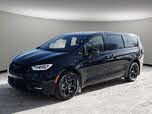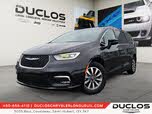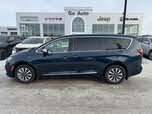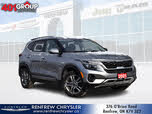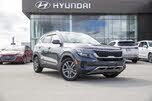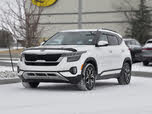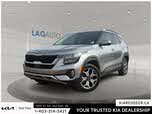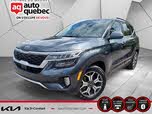2022 Chrysler Pacifica Hybrid vs 2021 Kia Seltos
Overview | ||
MSRP | $21,990 | $49,000 |
Average price | $23,775 | $42,683 |
Listings | ||
Ratings & Reviews | ||
User reviews | ||
Expert reviews | 8.0 out of 10Read full review | 7.5 out of 10Read full review |
Pros & cons | Pros
| |
Summary | The subcompact SUV segment has now grown to 18 vehicles and counting. It is one of the fastest-growing vehicle segments among new cars. This is in large part due to the combination of usable cabin space, efficiency, price, and confidence-inspiring ride height. But even within this segment, there are two classes of vehicles. There are ones that feel somewhat watered down, such as the Ford EcoSport, Chevrolet Trax, and Nissan Kicks. And then there are subcompact SUVs that do not force the buyer to compromise. Options like the Hyundai Kona, Mazda CX-30, Honda HR-V, and Subaru Crosstrek scale down the size of the SUV without paring back on the quality or features. The all-new 2021 Kia Seltos, slotted below the compact Kia Sportage and midsize Kia Telluride and Sorento, is very much in the latter group, and it may lead the pack out of the gate. The Seltos provides a high-quality cabin, the latest infotainment and safety technologies, and driving dynamics that go well beyond the segment status quo. | The summer of 2022 has been a doozy. Gas prices went sky high and heat waves rolled across the country. If you’re rethinking the purchase of a three-row SUV and trying to find a fuel-efficient solution that emits greenhouse gas emissions only part of the time, the seven-passenger Chrysler Pacifica Hybrid might be a good solution. It doesn’t offer all-wheel drive (AWD) as other Pacificas do, but it has a plug-in hybrid powertrain supplying a Natural Resources Canada-rated 51 kilometres of electric range before the gasoline V6 engine fires up to deliver 8.0 litres per 100 kilometres in combined driving. |
Video | No video found | |
Popular Features & Specs | ||
Engine | 2.0L 146 hp I4 | 3.6L 260 hp V6 Hybrid |
Drive Train | AWD | FWD |
Seating Capacity | 5 | 7 |
Horsepower | 146 hp @ 6200 rpm | |
EV Battery Capacity | 16 kWh | |
MPG City | 27 | 87 |
MPG Highway | 31 | 77 |
Battery Charge Time (120V) | 14 hours | |
Battery Charge Time (240V) | 2 hours | |
Engine | ||
Engine Name | 2.0L 146 hp I4 | 3.6L 260 hp V6 Hybrid |
Torque | 132 lb-ft @ 4500 rpm | |
Horsepower | 146 hp @ 6200 rpm | |
Battery Charge Time (120V) | 14 hours | |
Battery Charge Time (240V) | 2 hours | |
Drivetrain | AWD | FWD |
Fuel Economy | ||
EV Battery Capacity | 16 kWh | |
MPG City | 27 | 87 |
MPG Highway | 31 | 77 |
Interior | ||
Seating Capacity | 5 | 7 |
Safety | ||
Front Crash Overall | 4 | 4 |
Side Crash Overall | 5 | 5 |
Dimensions & Capacity | ||
Cargo Space | 26.6 cu ft | 32.3 cu ft |
Curb Weight | 3087 lbs | 5010 lbs |
Height | 63.6 in | 69.9 in |
Length | 172.0 in | 204.3 in |
Width | 70.9 in | 90.4 in |
Wheelbase | 103.5 in | 121.6 in |
Maximum Payload | 1080 lbs | 1313 lbs |
Number of doors | 4 | 4 |

By: CarGurus + AI
At CarGurus, our team of experienced automotive writers remain at the heart of our content operation, conducting hands-on car tests and writing insightful guides that are backed by years of industry experience. To complement this, we are harnessing AI to make our content offering more diverse and more helpful to shoppers than ever. To achieve this, our AI systems are based exclusively on CarGurus content, ratings and data, so that what we produce is both unique to CarGurus, and uniquely helpful to car shoppers.


